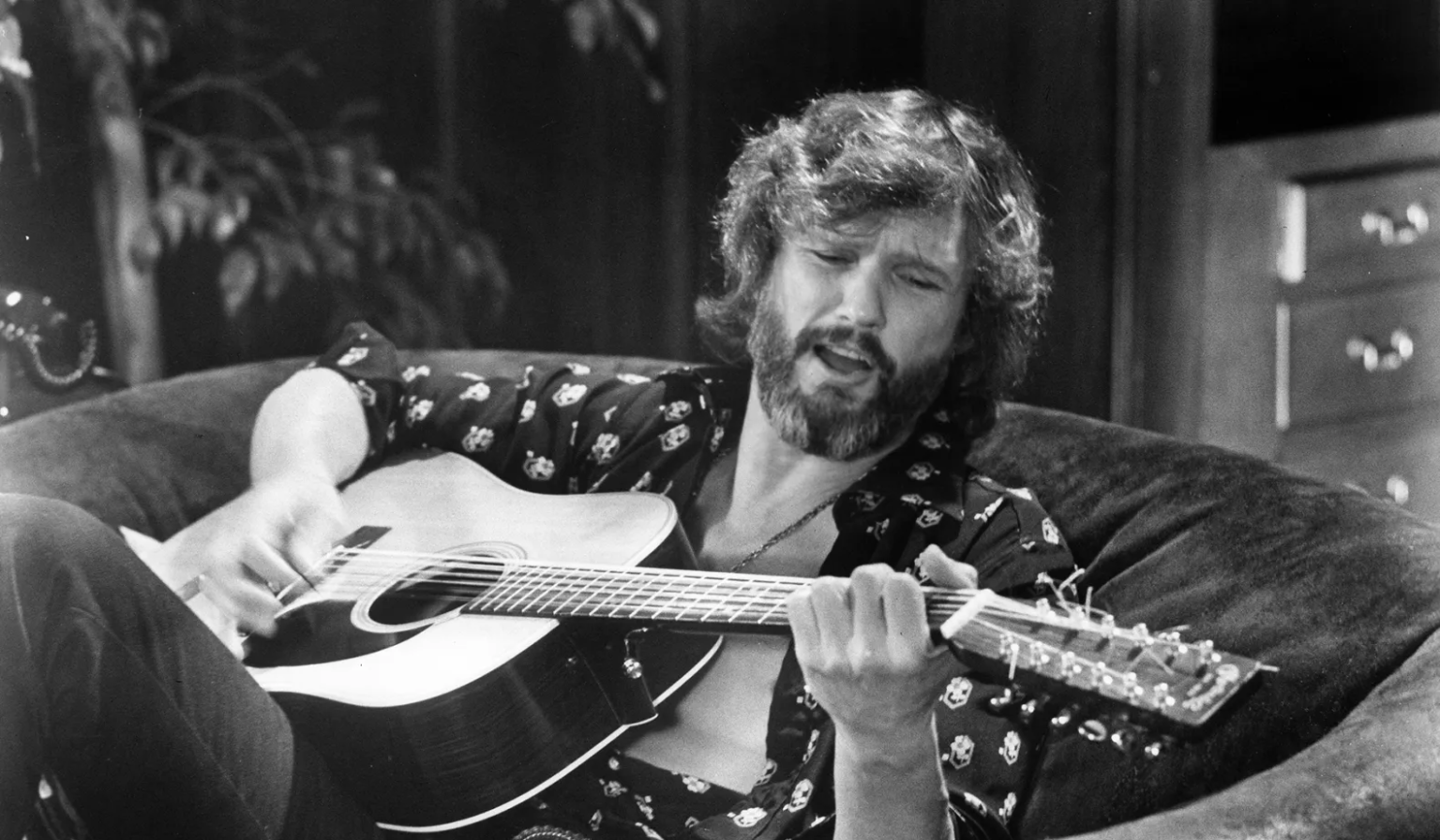A Towering Legacy in Country Music
Kris Kristofferson’s life story is as unique as his music. Born in Brownsville, Texas, in 1936, Kristofferson excelled academically and athletically, earning a Rhodes Scholarship to study at Oxford University. After obtaining his master’s degree in English literature, he joined the U.S. Army, becoming a helicopter pilot and reaching the rank of captain.
Despite his promising military career, Kristofferson decided to pursue his passion for songwriting, leaving the Army to chase his dream in Nashville. It was a decision that would define his life and career. He worked as a janitor at Columbia Records while writing songs, eventually gaining the attention of artists like Johnny Cash, who would go on to record some of his most famous work.
Kristofferson is celebrated for his profound impact on country music, having penned some of the most enduring songs in the genre’s history. Hits like “Sunday Mornin’ Comin’ Down,” “Help Me Make It Through the Night,” “For the Good Times,” and “Me and Bobby McGee” are among the countless songs he wrote that have become standards. Although Kristofferson recorded many of his own songs, it was often other artists, such as Ray Price, Janis Joplin, and Johnny Cash, who brought his lyrics to widespread acclaim.

“Me and Bobby McGee,” a song co-written by Kristofferson, was immortalized by Janis Joplin and became one of the most iconic songs of the 1970s. Joplin recorded her version just days before her untimely death, and it became a posthumous hit. In interviews, Kristofferson reflected on the deep connection he shared with Joplin and how her interpretation of the song gave it new meaning.
From Music to Hollywood Stardom

Kristofferson’s talent extended beyond songwriting. He transitioned into acting and became a Hollywood star, earning recognition for his performances in films like “Alice Doesn’t Live Here Anymore” (1974), “A Star Is Born” (1976), and the “Blade” trilogy (1998-2004). His portrayal of John Norman Howard in the 1976 remake of “A Star Is Born” alongside Barbra Streisand won him a Golden Globe Award for Best Actor.
While his on-screen roles were diverse, from Westerns to dramatic films, Kristofferson remained closely connected to music throughout his acting career. He formed the country supergroup The Highwaymen alongside fellow legends Johnny Cash, Willie Nelson, and Waylon Jennings. The group’s 1985 hit “Highwayman” topped the country charts and solidified Kristofferson’s place in country music history.
An Enduring Influence on Music and Film
Kris Kristofferson’s contributions to music earned him numerous accolades throughout his career, including three Grammy Awards and a Lifetime Achievement Award from the Recording Academy in 2014. His songs have been recorded by hundreds of artists across different genres, from Al Green to Michael Bublé.

Kristofferson’s influence extended beyond his music. He became a symbol of the fusion between country, folk, and pop music, representing a new generation of songwriters who brought a sense of vulnerability, introspection, and poetic lyricism to country music. As Willie Nelson once said, “There’s no better songwriter alive than Kris Kristofferson.”
Final Years and Legacy
In his later years, Kristofferson stepped away from the limelight. He was diagnosed with memory loss, initially thought to be Alzheimer’s disease, but later attributed to Lyme disease. Despite health struggles, he made occasional guest appearances and remained active in music until his retirement in 2021.
Kristofferson leaves behind an enduring legacy, not only as one of country music’s greatest songwriters but also as a versatile actor and cultural icon. His work, whether through his music or films, continues to inspire and resonate with audiences around the world.
He is survived by his wife, Lisa Meyers, eight children, and seven grandchildren. As fans mourn his passing, they celebrate the life of a man who truly defined artistry in both song and film.


